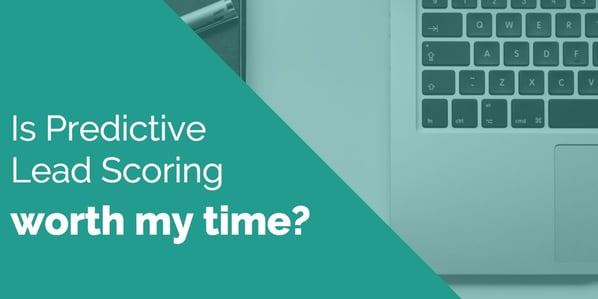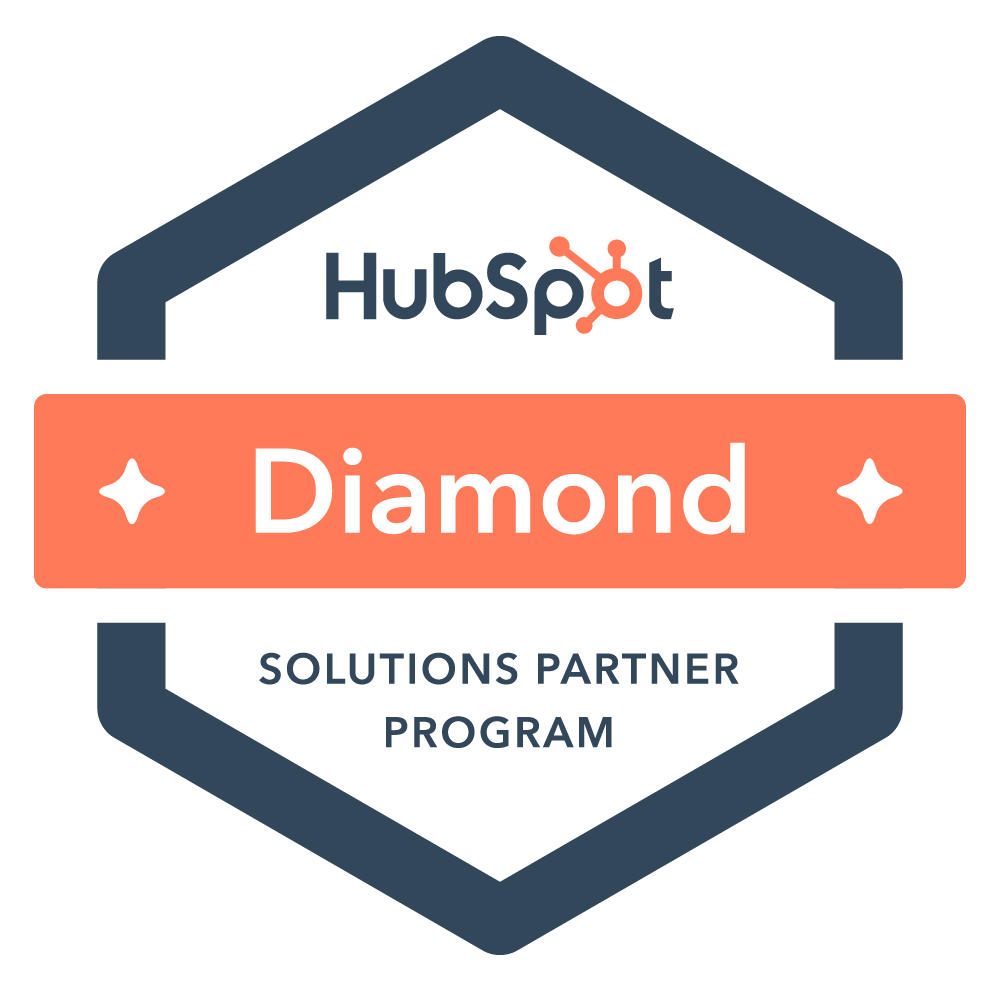Is predictive lead scoring worth my time?


For many business owners, improving online marketing to generate more leads is a good use of resources. Using cutting edge marketing technology to manage that can be a great way to get more insights from your activities, and to provide more information on who’s coming to your website.
There are a lot of great things to integrate into your website or marketing platform. One that I am frequently asked about is predictive lead scoring.
What is lead scoring?
Before we get into the predictive part, let’s discuss what lead scoring alone is. Lead scoring is a system that allows you to set rules that assign points to different leads that come into your marketing system. A good use of lead scoring is to assign different values to specific activities, characteristics, and companies.
In a perfect world, when a VP at a company in your target industry comes to your site, lead scoring would quickly identify her as a high-value lead. Then it would trigger some sort of notification for a salesperson to reach out.
But if a student downloads all of your ebooks for a research project, they would get a negative lead score. From there, they could be sorted so they aren't pulled into other lead nurturing campaigns you have going.
What is predictive lead scoring?
One of the main problems with lead scoring is that there’s a lot of work involved to use it properly. You not only have to develop an initial list of criteria, but you also have to constantly update and refine the rules for the scores to be meaningful.
Predictive lead scoring seeks to solve that problem. It would analyze the signals that your leads give you, and assign values to each action to generate a score. It would look at the dataset of customers from your contact database and determine what they have in common.
Once it analyzes all that information, it implements a scoring system. It will assign a score to each new lead, based on how your previous leads and customers have behaved.
Quick technical diatribe:
Predictive lead scores are generated by using a technology called “machine learning”. Machine learning is what email services use to determine spam scores, among other things. It works best when there’s a huge set of data that you can use, and some sort of human interaction that you can use to train the system. In this instance, you would use all the people who’ve come in and closed as customers as your training data. The machine learning algorithms will find the common attributes between them.
Does Predictive Lead Scoring Work?
This is where we get into contentious territory. The technology behind predictive lead scoring is sound. However, your organization almost certainly doesn’t have enough information to need predictive lead scoring. Here’s why:
Many services recommend that you need to have at least 3000 customers in your database to build out a model. But actually, you'd need 3000 customers who have interacted with your website before they closed. That eliminates customers who closed through more traditional, person-to-person means.
Even with 3000 inbound customers, you'd need a highly standardized product offering and sales process to get any meaningful intelligence from your database. If you have multiple products or services, then you need lead scoring models for each option. This presents a huge logistical challenge.
Buying signals vary a lot between customers and individuals. If you’re looking at predictive lead scoring, you're likely a B2B company. This means you likely have several people involved in the buying process, using multiple devices.
Some people like to research endlessly before talking to someone. Some people look at the website just long enough to find a phone number to call. They can be equally good customers, but their online behavior varies considerably.
In reality, your predictive lead scoring rules end up looking pretty obvious. People who have filled out more than one form get more points. People who attend webinars get more points. People whose occupation is "student" get negative points. The insights you end up gaining from them turn out to be relatively minor.
What should I use instead?
The point of lead scoring is to speed up the lead handoff process. The point of predictive lead scoring is to get more intelligent about identifying good leads. There are several ways to set up automated notifications with most marketing automation systems.
If you aren’t reviewing every lead that comes in, then look at reviewing everyone that fills out certain forms. If you need to go a layer deeper than that, try setting up notifications whenever someone has a title that includes a key term, like VP or CEO.
You can also augment this with email notifications about specific page visits. If someone in your contact database visits the pricing page or case studies, that can trigger an email to a sales rep to let them know what’s happening.
Predictive lead scoring sound impressive and sophisticated. In reality, few companies have a marketing program big enough to need it. Even those that do can still be thwarted by someone filling out a form with their personal email address. Examining other routes that will produce the same effect is better use of time and effort.







